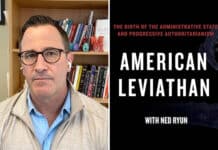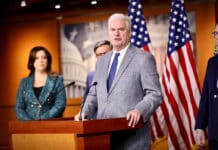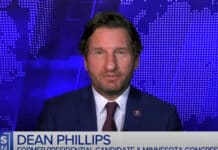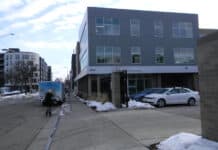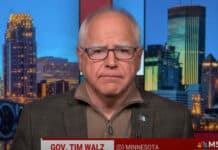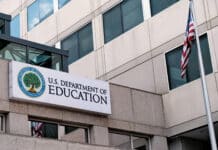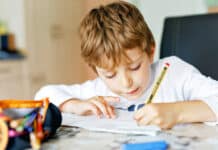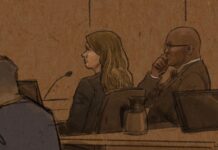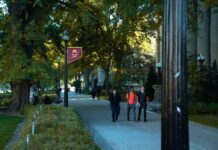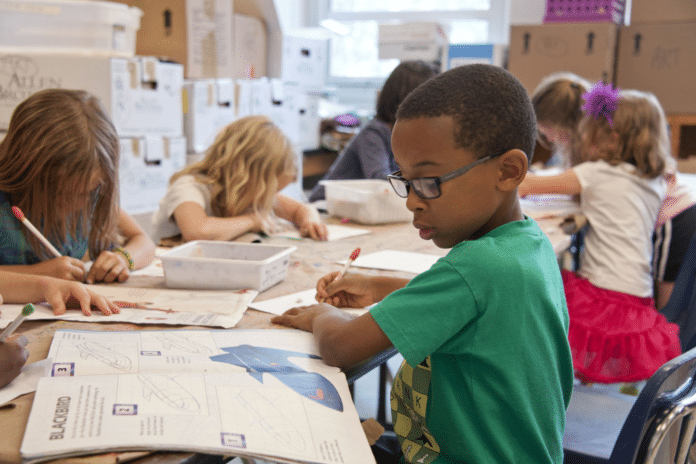
As public schools with billions of taxpayer dollars are overwhelmed by the latest teachers union-induced closures, private — mostly sectarian — schools across the United States left their gates open to students during the last 17 months or more.
Alpha News recently spoke to three men to learn how their private schools followed the data, adapted, and instead of ignoring science and returning to inefficacious remote learning, persevered.
Reminder that a year ago the Chicago Teachers Union was pulling the same thing. https://t.co/ir947a63oW
— Karol Markowicz (@karol) January 8, 2022
Brian Washburn runs a private school in western North Carolina.
The school resumed in-person classes in August 2020 under a mask mandate before implementing a modified mask approach after doing their own research.
“Did we follow the mandates from the Health Department to the nth degree? No. Did we follow them in a reasonable manner? Yes,” Washburn said. “We checked temperatures each morning, and our approach was students would wear masks when moving around the building and in situations where social distancing was not possible.”
When going to the restroom or lunch, for example, students wore masks, though when going to recess, they did not. Once in their classrooms, “students removed their masks to breathe fresh air rather than recirculate stale air into and through their masks,” Washburn explained.
The school also voluntarily abstained from interscholastic athletics to reduce the risk of outside exposure.
“The school-wide focus was to live with the germs we shared each day and not to introduce any new ones from outside contacts,” Washburn added.
Before the current school year, masks were made optional. The buildings have been open every week this year and no COVID cases have tracked to the school. When families have been exposed elsewhere, they cooperate when asked to quarantine. Athletics and field trips have resumed.
“As a general rule, we are COVID conscious, but not COVID panicked,” Washburn explained. “I am convinced that we have had asymptomatic cases in our building and may have some now. Even though the Health Department has offered to come on a regular basis and test our students — and even to set up and vaccinate them — we have refrained from involving them on-campus. We do our best to follow the guidelines they provide us within a reasonable manner, and to keep parents informed. It may not work everywhere, or even anywhere else, but it works for us.”
Sam Krohn sends his two children under 12 to a private school in central Minnesota.
At the Christian school, they followed state guidelines when forced to mask, but then “we abided by the old-fashioned ‘if you’re sick, stay home’ rule,” Krohn said.
The K-12 campus with roughly 250 students did not make other major changes and has attempted to run as normally as possible the last two years.
“We are pleased,” Krohn said. “Our kids chose to switch schools and were willing to change. The school takes COVID seriously, but they’re also working hard to provide the most normal environment for children while dealing with pandemic.”
Carl Cohen’s son runs a small Jewish day school in Boston.
When coronavirus hit, parents who wanted their children to stay home were given the option, though most parents opted for in-person school.
“With very few exceptions, school went on throughout the year,” Cohen, who now lives in Ohio, said. “Students wore masks, temperatures were taken daily, social distancing was practiced, and school pretty much went on as usual. My son said it was trying but manageable.”
His other grandchildren attend a religious school in suburban Chicago, where they did both at-home and live school last academic year. This year, Cohen reports, schooling is all live and in-person, except for when area numbers rise. They eat boxed lunches in their classrooms.
Planning and flexibility clearly goes a long way.
Anecdotal evidence or otherwise, public school leaders and politicians should muster the strength to stand up to noxious teachers unions, since their members are safer in school than most other workers. There’s no reason to continue harming vulnerable kids.
Liberals still can't accept one simple fact: The massive school closures in the United States are an INTERNATIONAL OUTLIER.
Europe. Asia. Elsewhere. They close EVERYTHING before they close schools…because they value their kids.
Here in America…we close schools first.
— Pradheep J. Shanker (@Neoavatara) January 2, 2022
A.J. Kaufman
A.J. Kaufman is an Alpha News columnist. His work has appeared in the Baltimore Sun, Florida Sun-Sentinel, Indianapolis Star, Israel National News, Orange County Register, St. Cloud Times, Star-Tribune, and across AIM Media Midwest and the Internet. Kaufman previously worked as a school teacher and military historian.


